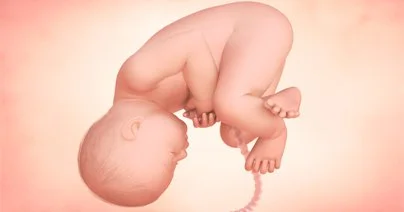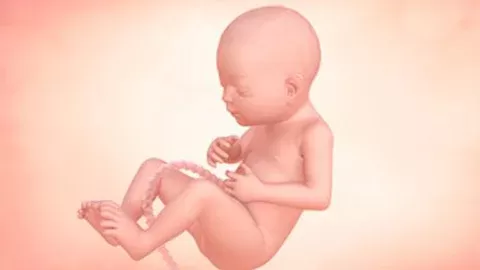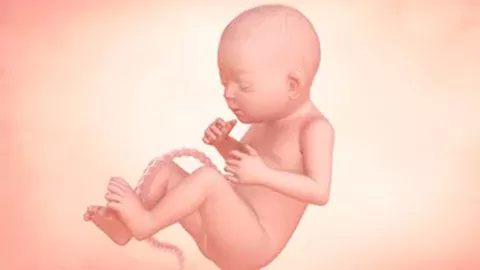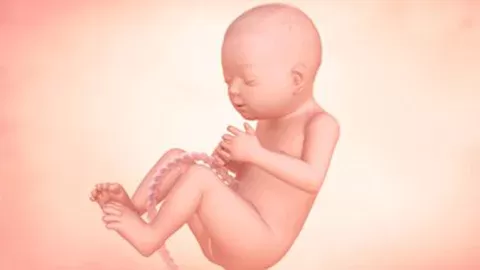 Help my growing baby develop in the 38th week of pregnancy
Help my growing baby develop in the 38th week of pregnancy
Your growing baby’s mental and physical development has grown so much that it weighs 14 ounces by week 38. Continue to support your growing baby’s mental and physical
development by eating a healthy, balanced diet.
What’s happening in the 38th week of pregnancy?
Your growing baby is getting plumper as more fat is deposited under the skin. The reproductive system is now fully formed. If you are having a boy, the testes are starting to descend into the scrotumi. Among girls, the uterine circumference increases from about 20 mm to just under 60mm and the width increases from less than 10mm to just over 20 mm between week 19 and 38.ii
Your growing baby has tiny toenails now, and the brain continues to grow to the point where it weighs 14 ounces (nearly 400 grams)iii.
On average, your growing baby weighs about 6.75 pounds (3.1 kilograms) and measures 19.6 inches (49.5 centimeters) from head to toe.iv
What can I expect in the 38th week of pregnancy?
You may experience diarrhea in the last few weeks of pregnancy. It’s a normal indication that labor is coming.v Here’s what you can do to ensure the continued health of your pregnancy:
- Drink plenty of water to replace the fluids you lose from any watery bowel movements.iv
- See your doctor. While most people will recover from diarrhea after a few days, you may need to get a prescription if it doesn’t clear up.
You might also start to feel “the lightning crotch”, a sharp and painful sensation in the vaginal area or increased pressure in the pelvic areavi. It occurs as your growing baby bumps into sensitive nerves in your pelvisvii. Don’t be alarmed when it happens – it’s not unusual to experience such a symptom at this stage of your pregnancy. Stay off your feet as much as possible to help relieve the pressure and discomfort.
What can you do to support your pregnancy?
It’s true that your growing baby’s brain develops rapidly during pregnancy. Your growing baby’s brain is about 25% of adult’s brain weight and will continue to grow to about 75% in the first 2 years.viii
Continue to eat a healthy, balanced diet rich in DHA and other essential nutrients like iron, zinc, copper, choline and folate, to support growing baby’s mental & physical development.ix
Discuss with your partner or close family members how present and involved you’d like them to be in your delivery. The more involved they are, the stronger will be the bond forged with your growing baby. Meditation is a good way of easing your worries, as is talking to someone you trust. You could also try penning down any thoughts you might be feeling in a diary or even draw your growing baby.
Your growing baby’s development in week 39





